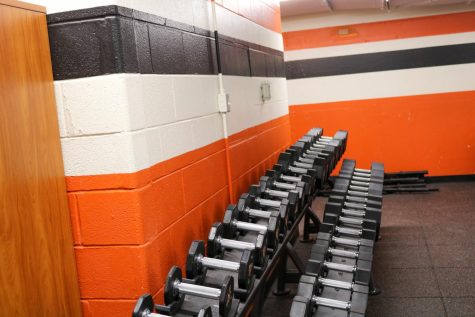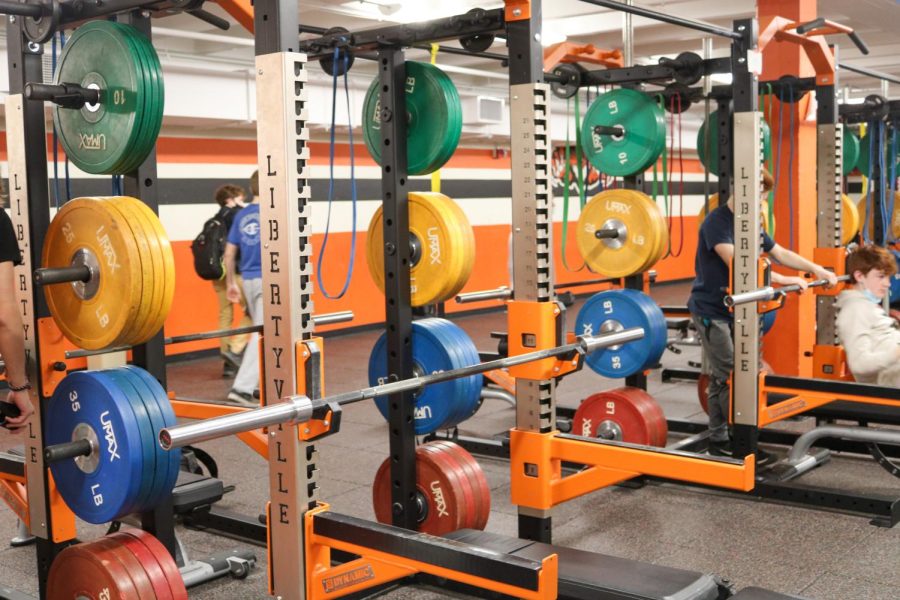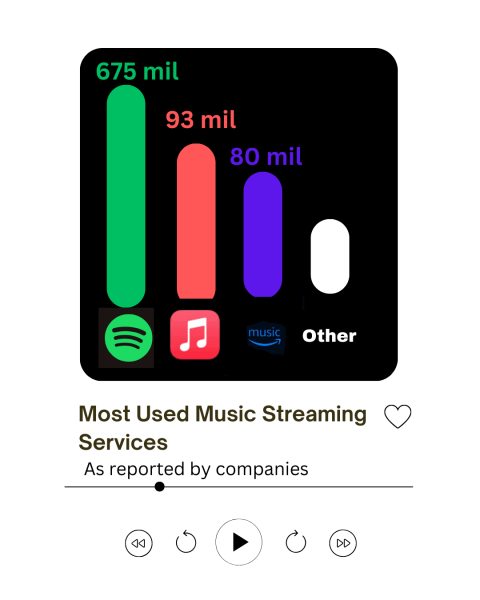Health Awareness is Rising, But at What Price?
Working out is a great way to keep a healthy routine while still maintaining the “teen lifestyle”. The weight room is a fun,easy access way to start this lifestyle and continue to strengthen your body in off seasons.
On the surface, gym and fitness culture seems simple. Go to the gym, eat healthy and take care of your body. Once you begin to dive in, the complexity of keeping your body healthy in the age of severe pressures from social media is more than what it seems.
Fitness culture has evolved into something completely different than what it was even 20 years ago. Diet culture, body image and eating habits have evolved as well.
The beginning of widespread physical health awareness boomed in the mid 20th century, as President Eisenhower implemented Presidential Fitness Testing into public schools. While the testing initiative has since been criticized, many believe that the origins of youth fitness began here. Since then, Gen Z especially has become more conscious of the importance of health and fitness. According to Center of Disease Control’s data from the National Youth Physical Activity and Nutrition study, 12.2 percent of high school students do the recommended 60 minutes of aerobic exercise daily and muscle strengthening three or more days a week.
This awareness provides a promising future for the improvement of health in our future generations, but at what cost?
The wave of fitness influencers on social media has created an accessibility to diet culture that has not been experienced by prior generations. TikTokers, Instagram influencers and other social media personnel have generated a societal shift in the attitude teens have in relation to fitness. The prominence of social media has contributed to how teens and adults alike view staying healthy, and can even be motivation to work out.
This phenomenon is a double-edged sword. Obviously, promoting healthy lifestyles for future generations is great, and is a large stride towards improving the health of future generations.
But, if not promoted honestly and correctly, teens can possibly receive misinformation in regards to what their exercise and dieting regimen should be, and could instill harmful health habits.
Physical education teacher Mrs. Carrie Keske, one of the LIFE (Lifelong Integration of Food and Exercise) teachers, emphasizes the importance of balancing a healthy diet with a consistent exercise regimen.
“Changing your eating habits is a lifestyle change, not something you do for a few weeks, like a fad diet. That is the only way a diet change will be successful,” Mrs. Keske said.
The prevalence of fad-diets can be extremely harmful to teens and young adults who are just starting their fitness journey. Calorie deficits paired with vigorous exercise can be very dangerous for growing and developing teens.
“As soon as you start taking away the foods and the things that you love, that’s when it’s going to be a chore,” Mrs. Keske explained. “My biggest suggestion is all in moderation.”
While dieting and disordered eating can be prevalent in a gym-goers lifestyle, overexertion can be problematic as well.
Fitness influencers and those in the fitness world love to post about different types of workouts and what muscles to work, but rarely do they ever talk about rest days. Many athletes and gym enthusiasts on social media claim to feel ‘gym guilt’ if they take a rest day. Gym guilt is feeling guilty about skipping a workout or taking extra time off from your workout routine.

(Sadie Parvis)
This phenomenon can cause more harm than good. Working out consistently is important, but taking rest days is just as necessary.
Heather Fahrenkrog, owner of Heather’s Gym in Libertyville, is a fervent advocate for including diversity of exercises within fitness routines.
“When you have a lot of variety in your fitness you don’t need to have a ‘rest day’,” Fahrenkrog said. “Inserting activities like yoga, or even a walk, will alleviate the feeling of gym guilt.”
Mrs. Keske also stresses having a set routine to help alleviate the remorse of not working out.
“Try and create a routine that you can stay consistent with every single day,” Mrs. Keske said. “Make sure to build in [organized] rest days, so you are still staying active but not harming your body. If you’re going to the gym every single day and working your body out to its max, [that] is not healthy. Your body is not going to experience any gains from that, because your body needs to be able to recover to rebuild.”
For many, getting a gym membership can seem intimidating, especially when you have to curate your own workouts and learn how to use the equipment properly, all while other members watch you. While most gym goers probably don’t pay attention to newer members, the fear still exists.
Fahrenkrog explains that sometimes the best option for new gym goers to build up confidence is to join a class or gym group.
“What makes you want to exercise and what makes you stick with it is people who you connect with and a life coach who knows your name. Owning a gym, I have to make people feel very comfortable. Because when you’re talking about fitness, you’ve got to be a little bit vulnerable. So joining a positive group makes that experience more enjoyable.”
Fahrenkrog understands the importance of not only “being strong” physically but also mentally and emotionally. “I like to stress [especially to young girls] that being strong and healthy is what your goal should be from working out.” she explained.
Many LHS students will be leaving for college soon, possibly leaving behind sports they played their entire lives. Transitioning from a student-athlete to just a student is very intimidating. Many students achieve their necessary exercise solely from structured practices their coaches organized.
As many students leave for college, their health and fitness is placed into their hands, with no one there to hold them accountable. Fahrenkrog suggests that those leaving soon should “start to implement a routine now.”
“Sometimes, the best way to socialize in a healthy way in college is to have a gym buddy,” Fahrenkrog said.“Parties are nice,but implement a healthy routine that you can do with your friends now, so when you’re older, you know what you need to do.”
Keeping yourself healthy is a lifelong goal. And it can be intimidating. Follow people on social media who promote a healthy fitness lifestyle that is obtainable for you.
“Helping people to take care of themselves is my whole purpose[in life]. To get people to just take care and love their body,” Fahrenkrog explained,
“Don’t compare yourself to others, and don’t be so critical of yourself. Find things to do that are enjoyable but make your body strong.”









